Nut Nutrition: Is Almond Butter Healthy?
Did you know that almonds are the tree nut with the highest amount of protein per serving? With their impressive nutritional profile, it's no surprise that almond butter has become a popular choice for health-conscious consumers.
But is almond butter healthy? In this article, we'll explore the nutritional benefits of almond butter, how it compares to other nut butter, and how to choose a healthy almond butter. We'll also share some delicious ways to incorporate almond butter into your diet.
What is Almond Butter?
Almond butter is a delicious and creamy spread made from ground almonds. It has become increasingly popular as an alternative to other nut butter, like peanut butter, because of its many health benefits. To understand why almond butter is a healthy choice, let's explore its nutritional content.
Almond Butter Nutrition
Almond butter is packed with essential nutrients that support overall health. Here are some key components of almond butter nutrition:
Vitamins and Minerals
Almond butter is rich in essential vitamins and minerals that help keep our bodies healthy. These include vitamin E, magnesium, calcium, and potassium.
Vitamin E acts as an antioxidant and supports healthy skin and eyes. Magnesium helps maintain strong bones and a healthy heart, while calcium is important for bone health and muscle function. Potassium is crucial for maintaining proper fluid balance and supporting heart health.
Healthy Fats
Almond butter contains a high amount of healthy fats, specifically monounsaturated and polyunsaturated fats. These fats are good for our bodies, as they help lower bad cholesterol levels, reduce inflammation, and support brain function. Consuming healthy fats is also essential for maintaining a healthy weight and managing hunger.
Fiber
Almond butter is a good source of dietary fiber, which is important for digestive health. Fiber helps keep our digestive system running smoothly and can prevent constipation. It also makes us feel full for longer, which can help with weight management.
Protein
Almond butter is a good source of plant-based protein, making it an excellent option for vegetarians and vegans. Protein is essential for building and repairing tissues, maintaining healthy muscles, and supporting our immune system.
Almond Nutrition Compared to Other Nuts
Almond nutrition is impressive when compared to other nuts. Almonds have a lower calorie count than many other nuts, making them a great choice for those watching their calorie intake. They also contain more vitamin E, magnesium, and calcium than most other nuts, providing added health benefits.
Health Benefits of Almond Butter
With its impressive nutritional content, almond butter offers a range of health benefits. Here are some of the top benefits to consider:
Heart Health
Almond butter's healthy fats and nutrients like magnesium and potassium contribute to a healthy heart. Consuming almond butter can help lower bad cholesterol levels and reduce the risk of heart disease.
Weight Management
The combination of healthy fats, fiber, and protein in almond butter can help keep you full and satisfied for longer. This can make it easier to control your appetite and maintain a healthy weight.
Blood Sugar Control
Almonds have a low glycemic index, which means they don't cause a rapid rise in blood sugar levels. Including almond butter in your diet can help manage blood sugar levels, especially for those with diabetes.
Bone Health
The calcium and magnesium found in almond butter are essential for strong bones. Regularly consuming almond butter can support bone health and prevent conditions like osteoporosis.
Better Brain Function
The healthy fats and vitamin E in almond butter support brain health. This can help to improve memory and cognitive function.
Comparing Almond Butter to Other Nut Butters
When choosing a nut butter, it's helpful to know how almond butter compares to other popular options. In this section, we'll look at the differences between almond butter and other nut butter, like peanut butter and cashew butter, in terms of taste, texture, and nutritional benefits.
Almond Butter vs. Peanut Butter
Almond butter has a mild, slightly sweet flavor compared to the more robust taste of peanut butter. Some people prefer almond butter's subtle flavor, while others may prefer the stronger taste of peanut butter.
Almond butter is often slightly thicker and grainier than peanut butter. The texture can vary depending on the brand and whether it's made from raw or roasted almonds. Both almond and peanut butter can be found in smooth or crunchy varieties.
Both almond butter and peanut butter have high amounts of healthy fats, protein, and fiber. However, almond butter contains more vitamins and minerals, like vitamin E, magnesium, and calcium. Peanut butter, on the other hand, has more protein and is typically less expensive.
Almond Butter vs. Cashew Butter
Cashew butter has a mild, creamy taste that is similar to almond butter but slightly sweeter. Both almond and cashew butter have a subtle nutty flavor that can complement a variety of foods.
Cashew butter is generally creamier and smoother than almond butter, making it a great option for those who prefer a softer texture. However, almond butter can be found in smooth varieties as well.
While both almond and cashew butter are good sources of healthy fats, protein, and fiber, almond butter has more vitamins and minerals. Cashew butter, however, is lower in calories and fat compared to almond butter.
Choosing a Healthy Almond Butter
When looking for a healthy almond butter, it's important to consider factors such as ingredients, processing methods, and added sugars. In this section, we'll provide guidance on how to choose a healthy almond butter that fits your needs and preferences.
Ingredients to Look For
A good quality almond butter should have simple ingredients. Here are some things to look for when checking the label:
- The primary ingredient in almond butter should be almonds so make sure they are listed first on the ingredient list
- Some almond butter brands add sugar to enhance the flavor so look for almond butter without added sugars to keep it as healthy as possible
- While some almond butter contain added oils to improve texture and spreadability, it's best to choose an option with little or no added oils
- A healthy almond butter should not contain artificial preservatives or additives so look for a product with a short, simple ingredient list
Processing Methods
There are two main processing methods for almond butter: raw and roasted. Each method affects the taste, texture, and nutritional content of the final product.
Raw Almond Butter is made from raw, unroasted almonds, this type of almond butter has a mild, subtle flavor and a slightly grainy texture. Raw almond butter retains more of the almond's natural nutrients, as the roasting process can reduce some vitamins and minerals.
Roasted Almond Butter is made from roasted almonds, this type of almond butter has a richer, deeper flavor and a smoother texture. Roasted almond butter may have slightly fewer nutrients than raw almond butter, but it still provides many health benefits.
Organic vs. Non-Organic
When choosing almond butter, you may wonder whether to opt for organic or non-organic options. Here are some factors to consider:
- Organic almond butter is made from almonds grown without synthetic pesticides
- Choosing organic can help reduce your exposure to potentially harmful chemicals
- Organic farming practices often promote soil health and biodiversity
- Choosing organic almond butter supports more sustainable agriculture
- Organic almond butter is typically more expensive than non-organic options
- Some people find that organic almond butter has a better flavor, while others don't notice a difference
Single-Serve Packets vs. Jars
Almond butter is available in single-serve packets and jars. Consider your usage habits and storage preferences when deciding which format to buy.
Single-serve packets are convenient for on-the-go snacking and portion control. They can be more expensive per serving than jarred almond butter.
Buying almond butter in a jar is usually more cost-effective, and it allows you to scoop out as much or as little as you need. Keep in mind that jarred almond butter should be stored in a cool, dry place and stirred before use, as the oil can separate over time.
Almond Butter and Dietary Restrictions
Almond butter is not only a nutritious and delicious option for most people, but it's also suitable for those with specific dietary needs or preferences. In this section, we'll discuss how almond butter can fit into various diets and provide essential nutrients to support health.
Gluten-Free Diets
For individuals with celiac disease or gluten sensitivity, finding suitable alternatives to wheat-based products can be a challenge. Almond butter is naturally gluten-free, making it an excellent choice for those who need to avoid gluten.
Vegan and Vegetarian Diets
Almond butter is an excellent source of plant-based protein, which is crucial for those following a vegan or vegetarian diet. It also contains essential nutrients like vitamin E, magnesium, and healthy fats that can help support overall health in plant-based diets.
Low-Carb and Keto Diets
While almond butter does contain some carbohydrates, the majority comes from fiber, which makes it a suitable option for those following a low-carb or ketogenic diet. The high healthy fat content in almond butter helps promote satiety and can support those on a keto diet in achieving and maintaining ketosis.
Allergy Considerations
For those with peanut allergies, almond butter can be a fantastic alternative to peanut butter. However, it's essential to be aware that almonds are still tree nuts, so individuals with tree nut allergies should avoid almond butter.
Incorporating Almond Butter into a Healthy Diet
Almond butter is a versatile ingredient that can easily be incorporated into a healthy diet. It can be enjoyed in a variety of ways, from savory dishes to sweet treats. In this section, we'll explore some ideas for adding almond butter to your meals and snacks and provide tips for keeping your intake balanced.
Breakfast Ideas with Almond Butter
Start your day with a nutritious and delicious breakfast featuring almond butter. Here are some ideas:
Smoothies
Blend almond butter with your favorite fruits, vegetables, milk, or yogurt to create a creamy and filling smoothie. This is a great way to pack in nutrients and enjoy a tasty morning treat.
Oatmeal
Stir almond butter into your warm oatmeal for added creaminess and a boost of protein. Top your bowl with fresh fruit, nuts, and a drizzle of honey for extra flavor.
Toast
Spread almond butter on whole-grain toast or a rice cake for a simple and satisfying breakfast. Add sliced bananas, berries, or a sprinkle of chia seeds for extra nutrients and texture.
Lunch and Dinner Ideas with Almond Butter
Almond butter can also be used in savory dishes for lunch or dinner. Try these ideas to incorporate it into your meals:
Salad Dressing
Whisk almond butter with olive oil, vinegar, and your choice of herbs and spices to create a flavorful and creamy salad dressing. Drizzle it over mixed greens, roasted vegetables, or a grain bowl for a tasty and nutritious meal.
Stir-Fry Sauce
Combine almond butter with soy sauce, garlic, ginger, and a touch of honey to create a rich and delicious stir-fry sauce. Toss it with your choice of protein, vegetables, and cooked grains for a filling and balanced meal.
Dipping Sauce
Mix almond butter with yogurt, lime juice, and your favorite spices to create a creamy dipping sauce for raw veggies, grilled chicken, or baked tofu. This is a great way to add extra flavor and nutrition to your meals.
Snack Ideas with Almond Butter
Almond butter makes a great addition to healthy snacks, too. Consider these options for incorporating almond butter into your snack routine:
Apple Slices
Spread almond butter on apple slices for a crunchy, sweet, and satisfying snack. This is a perfect option for an afternoon pick-me-up or a post-workout refuel.
Energy Bites
Make your own almond butter energy bites by mixing almond butter with oats, honey, and your favorite mix-ins, like dried fruit or nuts. Roll the mixture into bite-sized balls for a portable and nutrient-dense snack.
Almond Butter-Stuffed Dates
Remove the pit from a Medjool date and stuff it with a spoonful of almond butter. This sweet and gooey treat is perfect for satisfying a sweet tooth while still providing valuable nutrients.
Is Almond Butter Healthy?
While almond butter is a nutritious and delicious addition to your diet, it's important to consume it in moderation. Almond butter is high in calories and fat, so be mindful of portion sizes. A typical serving size is about two tablespoons.
Discover the Health Benefits of Almond Butter Today
So, is almond butter healthy? Almond butter is indeed a healthy and nutritious option when enjoyed in moderation. It's packed with essential nutrients, and its versatility makes it easy to incorporate into your meals and snacks.
By choosing a high-quality almond butter and using it in a balanced diet, you can enjoy the many benefits it has to offer. Visit our store to find a variety of delicious almond butter options and start experiencing the health benefits of this tasty nut butter today!
Being allergic to peanuts, almonds and cashew butter has changed my life. It’s a great way to get in extra protein and tastes super good.
Almond butter has changed my ways for life, healthy and super delicious sweet treat.
I’ve always loved PB but could never find an Almond Butter I liked until I found ADNB! I’m so grateful for the flavorful creations they make to make sticking to my goals more enjoyable.
Almond butter is the best! Great heathy snack
 All Nut Butters
All Nut Butters
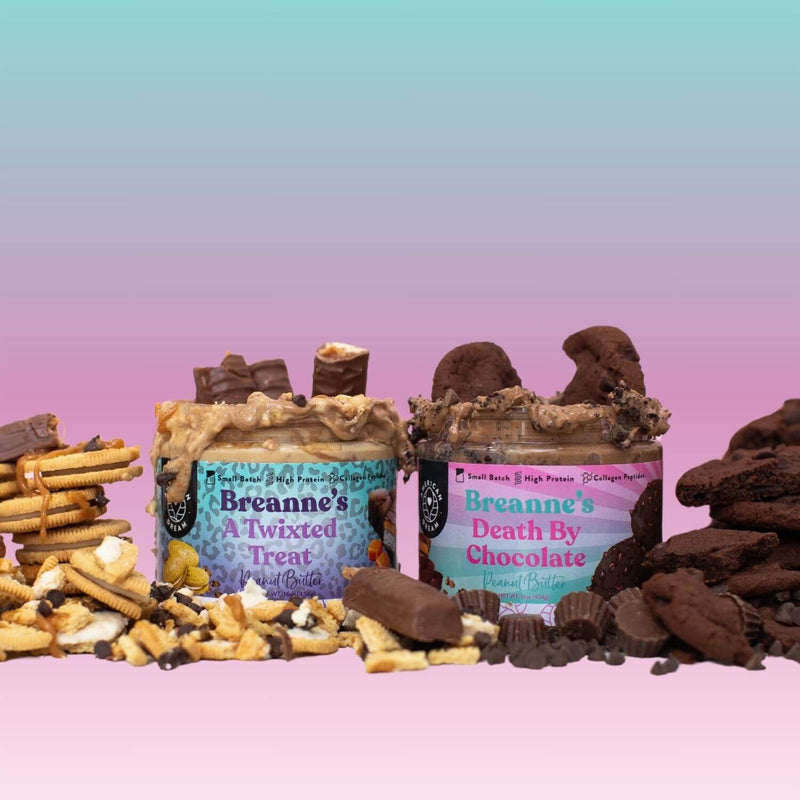 Highest Protein
Highest Protein
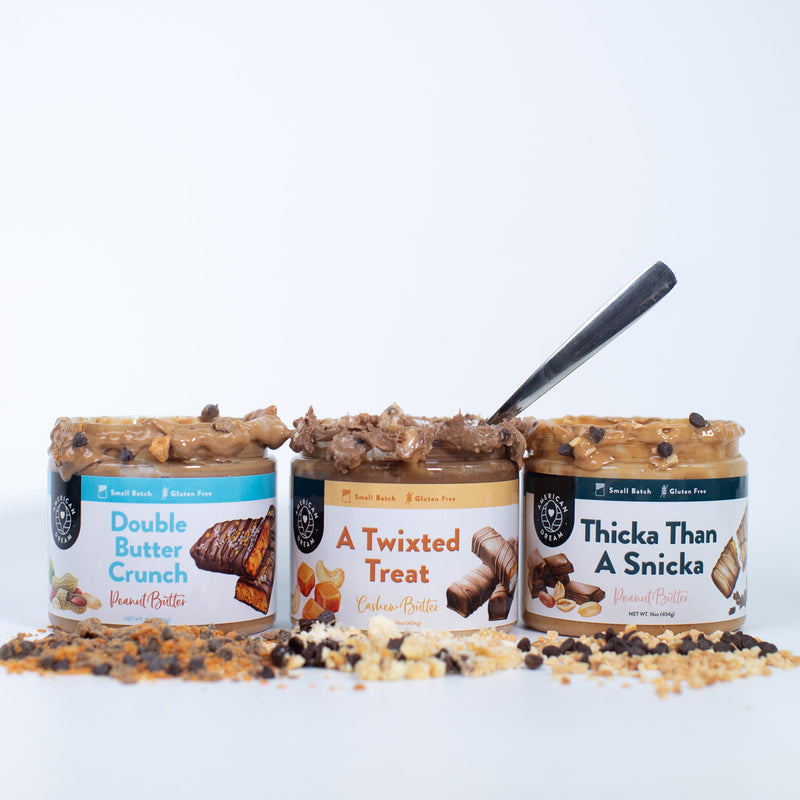 Butter Bundles
Butter Bundles
 Indulgent Butters
Indulgent Butters
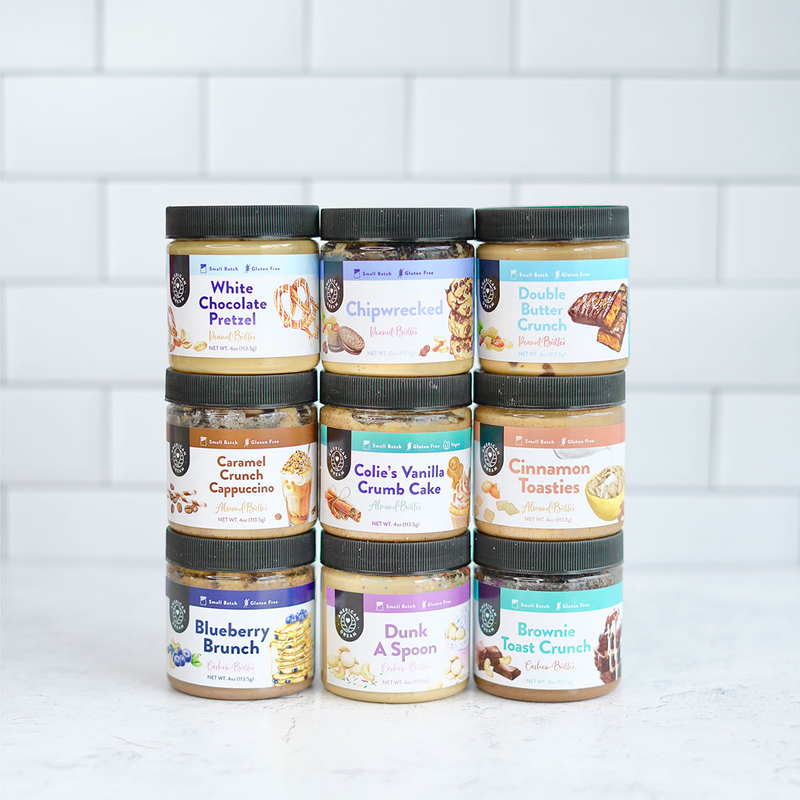 Sample Sizes
Sample Sizes
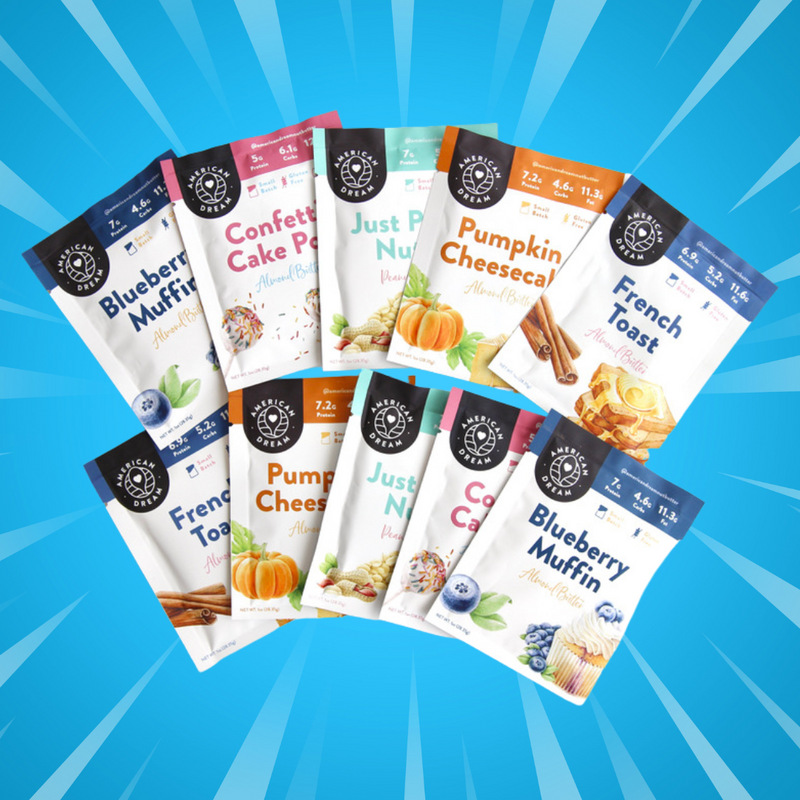 On-The-Go Packs!
On-The-Go Packs!
 Retiring Soon!
Retiring Soon!
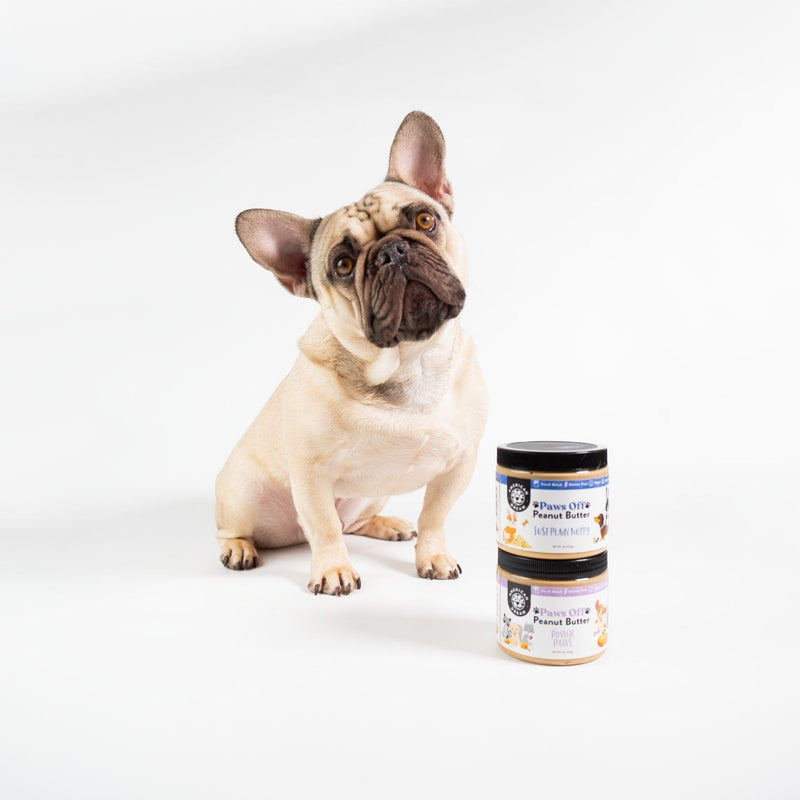 Paws Off
Paws Off
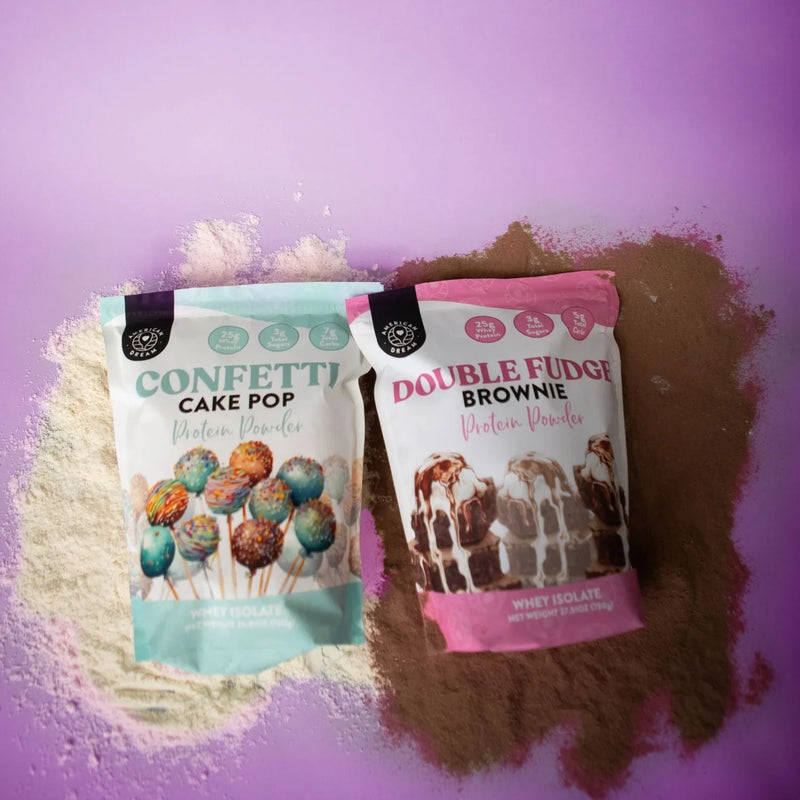 Nutrition
Nutrition
 Merch
Merch
 Gifting
Gifting
 Lucky You
Lucky You

